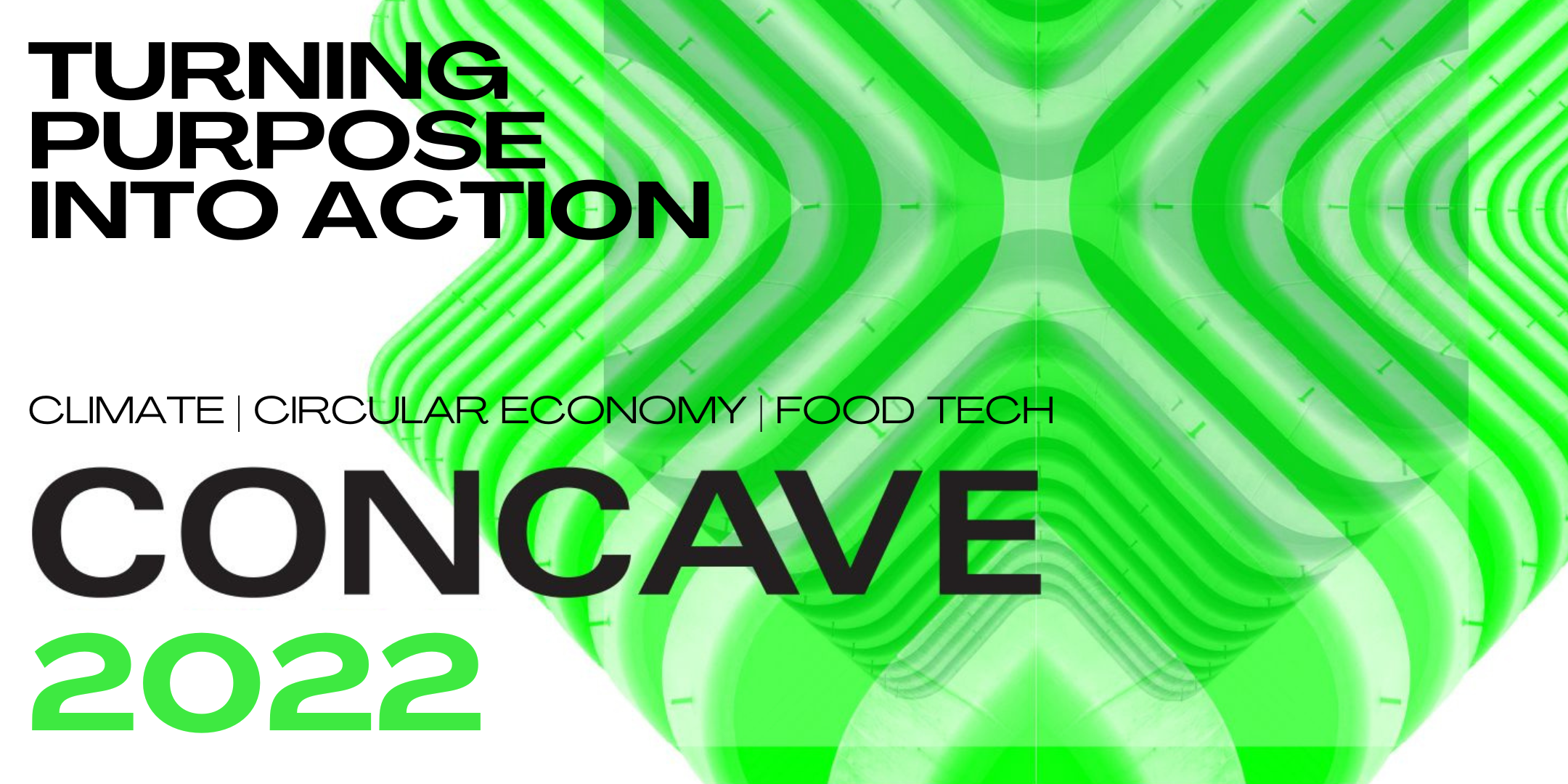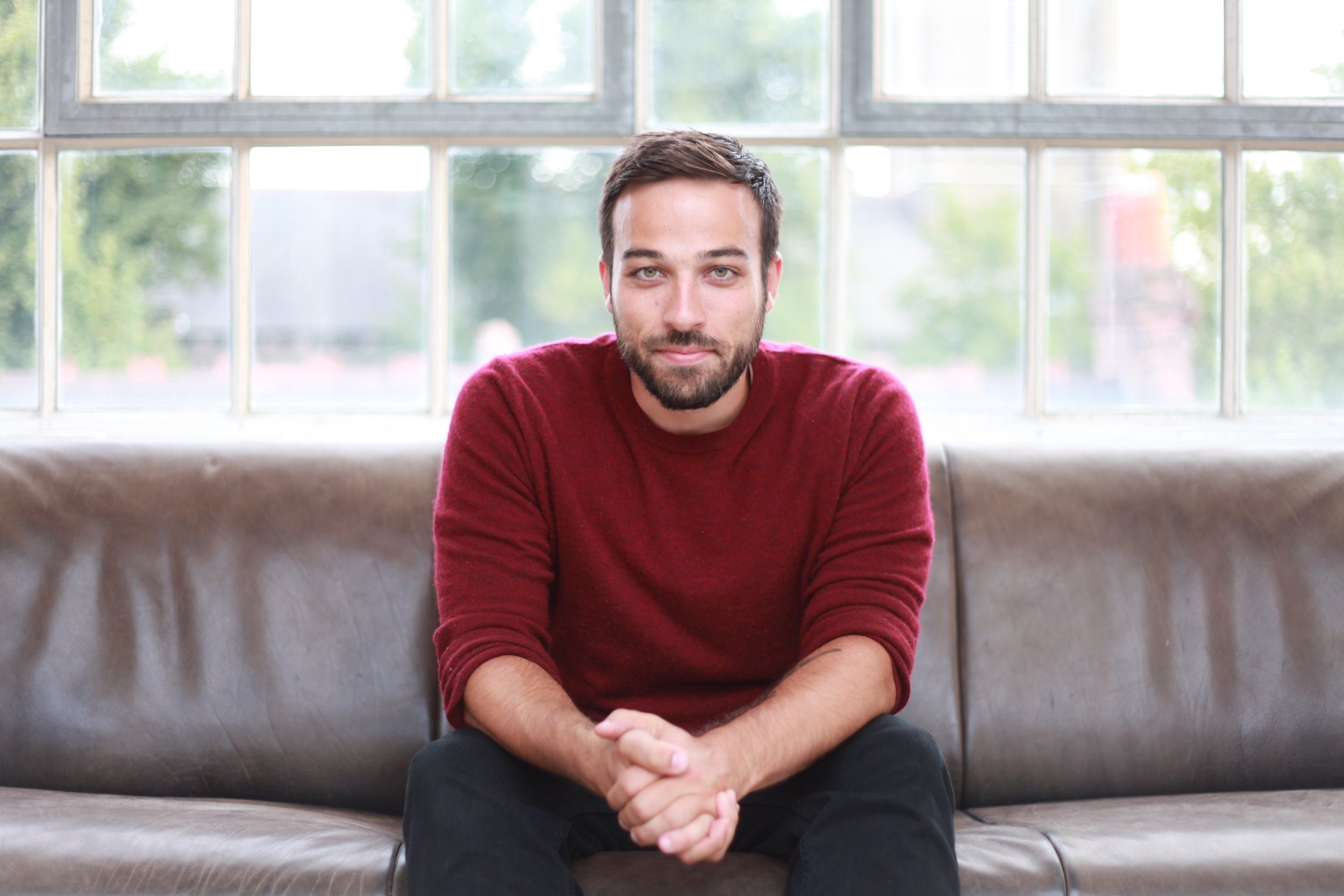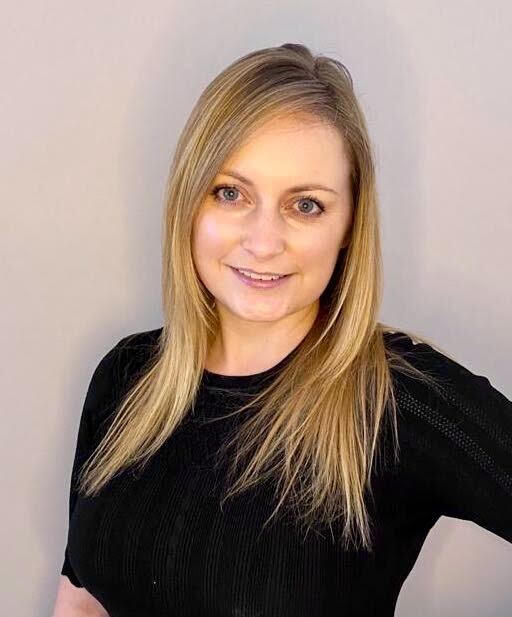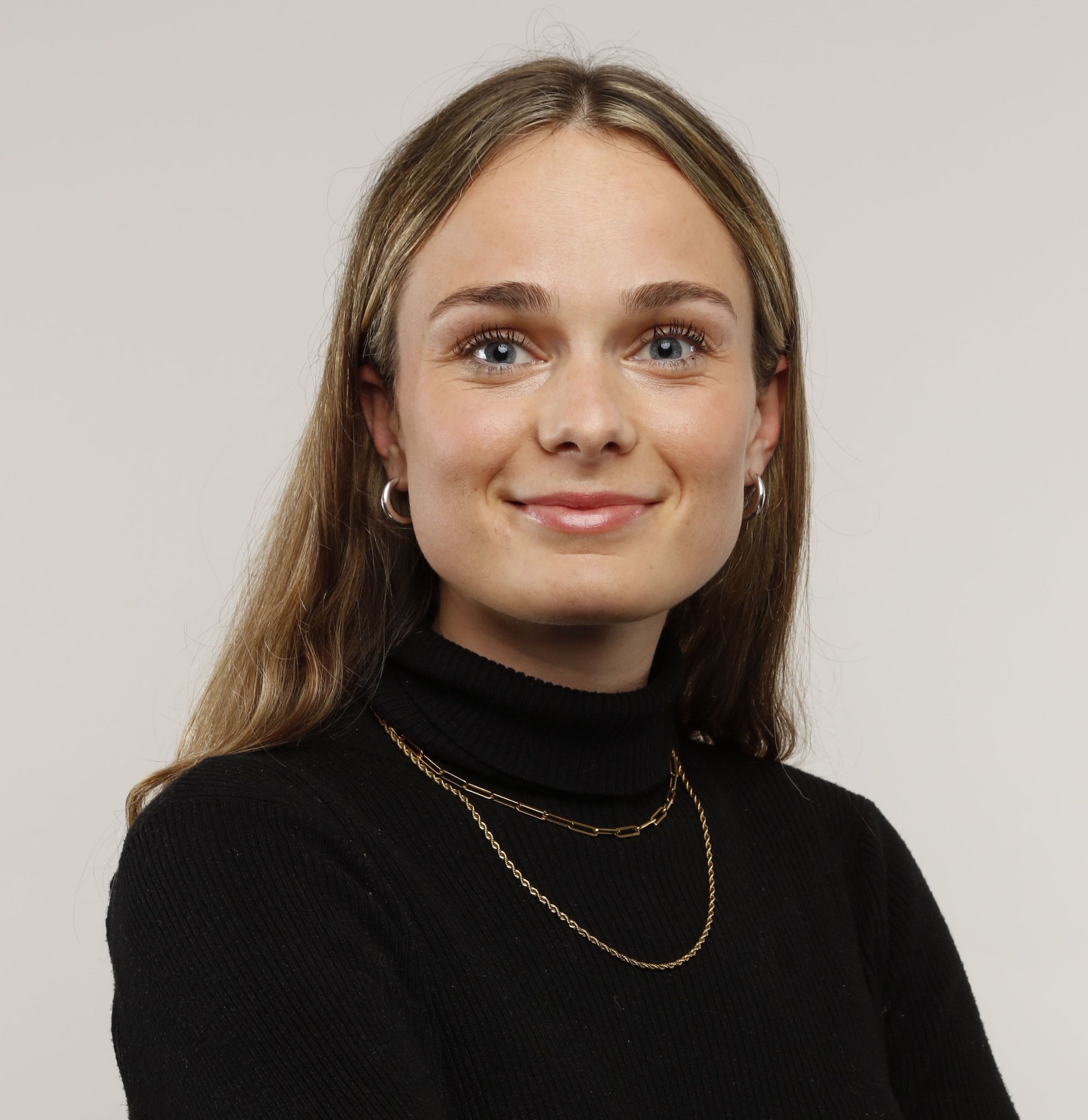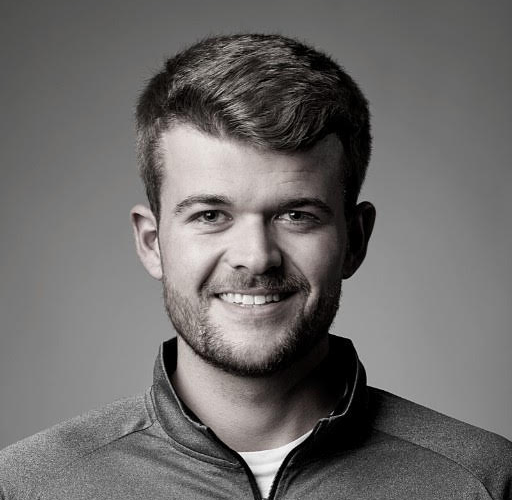What Web3 can (and can't) do to tackle climate change
Crypto is trying to disrupt everything from shipping to shopping, but one of the fastest growing new industries Web3 is gunning for is climate change tech. In this panel we explore two of the most promising projects taking on this daunting task to understand the opportunities, but also the limits of what can be done using distributed ledger technology.
——
About Zero Knowledge
Zero Knowledge is a media company making Web3 and crypto easier to understand. How? By combining top tier journalism, class-leading storytelling and every now and again, a dash of humour. All with the aim of demystifying the next chapter of the web.
What Web3 can (and can't) do to tackle climate change
Crypto is trying to disrupt everything from shipping to shopping, but one of the fastest growing new industries Web3 is gunning for is climate change tech. In this panel we explore two of the most promising projects taking on this daunting task to understand the opportunities, but also the limits of what can be done using distributed ledger technology.
——
About the panelist: Aureline Grange
Aureline is an experienced environmental engineer and former head of digital solutions at CSD Engineers.
She’s now the Chief Climate Officer at Open Forest Protocol (OFP), an open platform allowing forest projects of any size, all over the world, to measure, report and verify their forest data. Through OFP, NGO’s, entrepreneurs, individuals, and even governments create transparent, immutable, proof-of-impact data that is comprehensively verified by a network of independent forest experts. OFP is creating the foundation for more inclusive, more scalable, and more data-backed financing mechanisms for nature-based climate solutions.
On her free time, she also helps businesses to calculate, reduce their carbon footprint and plant trees all around the world with ON A MISSION, a non profit organisation she co-founded with Fred Fournier (CEO at Open Forest Protocol).
What Web3 can (and can't) do to tackle climate change
Crypto is trying to disrupt everything from shipping to shopping, but one of the fastest growing new industries Web3 is gunning for is climate change tech. In this panel we explore two of the most promising projects taking on this daunting task to understand the opportunities, but also the limits of what can be done using distributed ledger technology.
——
About the panelist: Alex.klima, DAO Strategy
KlimaDAO aims to help scale up the Voluntary Carbon Market, allowing it to be more transparent, efficient and accessible for those who wish to access it. At KlimaDAO, Alex is developing the strategy and long-term growth objectives of the protocol, and how it can best provide infrastructure that supports the growth of the wider VCM.
Keynote Presented by Tech Zero: Net Zero Crash Course
Tech Zero is the organisation of over 340 tech companies of all sizes and stages committed to climate action, and an official partner to the UN Race to Zero.
This 25-minute crash-course on net zero will cover everything you need to know to get started on your journey of measuring, reducing, and removing your business’ carbon footprint.
Key Topics
+ The definition of net zero
+ The definition of carbon neutral
+ We we use ‘carbon’ as shorthand for all greenhouse gases
+ The business case for going net zero
+ How to measure your emissions
+ Key areas of emissions and how to reduce them
+ Carbon removal
——
About the Speaker
Sophia Kesteven is the lead at Tech Zero, where she works with over 330 tech companies to help them understand, commit to, and reach net zero. With a background in renewable energy and smart technologies - including solar storage batteries and EV chargers - she holds a certificate of Business Sustainability Management from the Cambridge Institute for Sustainable Leadership, and has recently completed ISO 140001 (Environmental Management) training. She believes that decarbonising businesses, and by extension their customers, will have a significant impact in avoiding the worst effects of the climate crisis.
How food tech startups can balance growth and sustainability
Businesses often ask how they can still grow as a business while aiming for net zero.
In this session, we’ll hear how a few startups have managed to do just that, and how aiming for net zero can help your company to grow.
——
About the Moderator: Sophia Kesteven
Sophia Kesteven is the lead at Tech Zero, where she works with over 330 tech companies to help them understand, commit to, and reach net zero. With a background in renewable energy and smart technologies - including solar storage batteries and EV chargers - she holds a certificate of Business Sustainability Management from the Cambridge Institute for Sustainable Leadership, and has recently completed ISO 140001 (Environmental Management) training. She believes that decarbonising businesses, and by extension their customers, will have a significant impact in avoiding the worst effects of the climate crisis.
How food tech startups can balance growth and sustainability
Businesses often ask how they can still grow as a business while aiming for net zero.
In this session, we’ll hear how a few startups have managed to do just that, and how aiming for net zero can help your company to grow.
——
About the panelist: Toni Coulson, Starling Bank, Head of Forward Flow Lending
Toni works in Starling's Asset Management team and has been leading the bank's Net Zero initiative for the last 18 months. She has more than 10 years experience in the banking industry across a number of roles, providing her with valuable insight into the key drivers of environmental impact across the sector. Working at Starling has enabled Toni to combine her passion for making a positive contribution to the environment with delivering customer-centric banking solutions. As Starling has been digital only and paperless from inception, the bank's environmental impact has always been mitigated by its core business model. However, it recognises that there is always more to do, and it is fully committed to playing its part in the fight against climate change starting now.
How food tech startups can balance growth and sustainability
Businesses often ask how they can still grow as a business while aiming for net zero.
In this session, we’ll hear how a few startups have managed to do just that, and how aiming for net zero can help your company to grow.
——
About the panelist: Dr. Laura Kirwan, Nutritics, Sustainability Lead
Laura is Sustainability Lead at Nutritics and holds a PhD in Sustainable Diets from University College Dublin. Nutritics is a software as a service provider to the Hospitality and Food Service sector, and helps businesses to unlock the hidden value of food data in real time, to manage recipes, create labels, plan and public menus and measure environmental impact. Laura was vice chair of the Sustainable Health Systems committee of the European Health Parliament (7th edition) and is a registered Nutritionist (ANutr). Laura also works as a food consumption database consultant for the European Food Information Resource (EUROFir) on data modelling for food safety, on National health policy, and is passionate about the role of technology in the transition to sustainable business.
Presented by Institute of Global Change & EDB: Boosting urban food resilience by harnessing technology
It is estimated that by 2050, two-thirds of the world’s population will live in cities and will consume 80 percent of all food produced. But supply chain disruptions and climate change present a threat to future food resilience. This panel will explore the technologies and policies that can help create the food-secure cities of the future.
Moderator: Hermione Dace, Institute of Global Change, Senior Policy Analyst
Panelists:
Ho Yan Yan, EDB, Regional Director, Europe
Oscar Rodriguez FRSA, UK Urban AgriTech Director of Policy
——
About the moderator: Hermione Dace, Senior Policy Analyst
Hermione Dace is a Senior Policy Analyst at the Tony Blair Institute for Global Change, a not-for-profit organisation that exists to equip political leaders and governments with the tools to create open, inclusive, and prosperous societies in a globalised world. At the Tony Blair Institute, Hermione focuses on developing policy and strategy to harness the opportunities presented by the technology revolution and, more specifically, advance the future of food. She holds a first-class honours degree in Politics and International Relations from the University of Bristol.
Presented by Institute of Global Change & EDB: Boosting urban food resilience by harnessing technology
It is estimated that by 2050, two-thirds of the world’s population will live in cities and will consume 80 percent of all food produced. But supply chain disruptions and climate change present a threat to future food resilience. This panel will explore the technologies and policies that can help create the food-secure cities of the future.
Moderator: Hermione Dace, Institute of Global Change, Senior Policy Analyst
Panelists:
Ho Yan Yan, EDB, Regional Director, Europe
Oscar Rodriguez FRSA, UK Urban AgriTech Director of Policy
——
About the Panelist: Ho Yan Yan, EDB, Regional Director, Europe
Yan Yan is the Regional Director, Europe at the Singapore Economic Development Board (EDB). Based in London, she oversees EDB’s marketing activities across UK and Europe, working alongside investors, corporates and ecosystem partners to support technology startups in uncovering and accessing new opportunities in Southeast Asia.
Yan Yan started her career in EDB helping Fast Moving Consumer Goods multi-national corporations expand their footprint in Asia. Motivated to share Singapore’s story with a broader audience, she joined the Brand, Marketing and Communications division as EDB’s market lead for Japan and subsequently led content development and branding for the digital technology sector.
Presented by Institute of Global Change & EDB: Boosting urban food resilience by harnessing technology
It is estimated that by 2050, two-thirds of the world’s population will live in cities and will consume 80 percent of all food produced. But supply chain disruptions and climate change present a threat to future food resilience. This panel will explore the technologies and policies that can help create the food-secure cities of the future.
Moderator: Hermione Dace, Institute of Global Change, Senior Policy Analyst
Panelists:
Ho Yan Yan, EDB, Regional Director, Europe
Oscar Rodriguez FRSA, UK Urban AgriTech Director of Policy
——
About the Panelist: Oscar Rodriguez FRSA, UK Urban AgriTech, Director of Policy
A registered Architect and Building Integrated Agriculture specialist, educated at Cambridge, Cardiff and UCL, with broad practical experience from 10 years in practice at Foster + Partners, Wilkinson Eyre, John McAslan + Partners and PLP Architecture.
Repurposing ancient solutions to modern problems
Better Nature and the power of tempeh fermentation to solve the climate crisis.
A fireside chat between Christopher Kong, Better Nature Co-Founder & CEO and Sam Marchant, Seed Stage Impact Investor
——
Christopher Kong is a biochemist-turned-entrepreneur who’s excited by the amazing potential of translating advances in food science and technology into real-world impact. Something he believes we can do through tempeh fermentation.
Repurposing ancient solutions to modern problems
Better Nature and the power of tempeh fermentation to solve the climate crisis.
A fireside chat between Christopher Kong, Better Nature Co-Founder & CEO and Sam Marchant, Seed Stage Impact Investor
——
Sam is a founder turned investor. Having scaled a low sugar cereal bar brand from a university startup to an internationally recognised challenger brand, Sam decided to jump to the other side of the table and joined a leading early-stage VC fund in 2021. Sam is an active angel investor through his own fund, Forward Pursuit VC, and works closely with major corporates looking to invest in early-stage startups.
When he's not investing in disruptive startups, Sam can be found out on his bike and has committed to cycling the length of a country every year for the next 10 years. Having cycled the length of Britain in September this year, France is next on his list in 2023.

